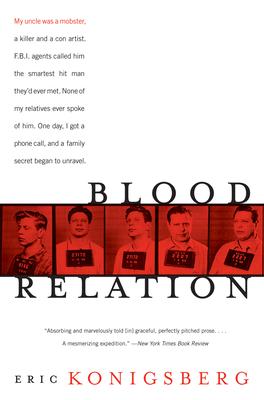A New Yorker writer investigates the life and career of his hit-man great-uncle and the impact on his family.
Growing up in a household as generic as Midwestern Jews get, author Eric Konigsberg always wished there was something different about his family, something exotic and mysterious, even shocking. When he was sent off to boarding school, he learned from an ex-cop security guard that there was: His great-uncle Harold, in prison in upstate New York, was a legendary Mafia enforcer, suspected by the FBI of upwards of twenty murders.
Konigsberg had uncovered a shameful, long-hidden family secret. His grandfather, a Jewish Horatio Alger story who had become a respected merchant through honesty and hard work, never spoke of his baby brother. When other relatives could be coaxed into talking about him, he wasn't "Kayo" Konigsberg, the "smartest hit man" and "toughest Jew" described by cops and associates; he was Uncle Heshy, the loudmouth nogoodnik and smalltime con, long since written off as dead. Intrigued, Konigsberg ignored his family's protests and arranged a meeting, which inspired the acclaimed New Yorker piece this book is based on.
In Blood Relation, Konigsberg portrays Harold as a fascinating, paradoxical character: both brutal and winning, a cold-blooded killer and a larger-than-life charmer who taught himself to read as an adult and served as his own lawyer in two major trials, to riotous effect. Functioning by turns as Kayo's pursuer, jailhouse scribe, pawn, and antagonist, Konigsberg traces his great-uncle's checkered and outlandish life and investigates his impact on his family and others who crossed his path, weaving together strands of family, Jewish identity, justice, and post-war American history.
